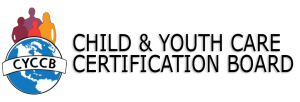III. Applied Human Development
Professional practitioners promote the optimal development of children, youth, and their families in a variety of settings. The developmental-ecological perspective emphasizes the interaction between persons and their physical and social environments, including cultural and political settings. Special attention is given to the everyday lives of children and youth, including those at risk and with special needs, within the family, neighborhood, school and larger social-cultural context. Professional practitioners integrate current knowledge of human development with the skills, expertise, objectivity and self awareness essential for developing, implementing and evaluating effective programs and services.
A. Foundational Knowledge
The professional practitioner is well versed in current research and theory in human development with an emphasis on a developmental-ecological perspective.
- Lifespan human development
- Child and adolescent development as appropriate for the arena of practice, (including domains of cognitive, social-emotional, physiological, psycho-sexual, and spiritual development)
- Exceptionality in development (including at-risk and special needs circumstances such as trauma, child abuse/neglect, developmental psychopathology, and developmental disorders)
- Family development, systems and dynamics
B. Professional Competencies
- Contextual-Developmental Assessment
- assess different domains of development across various contexts
- evaluate the developmental appropriateness of environments with regard to the individual needs of clients
- assess client and family needs in relation to community opportunities, resources, and supports
- Sensitivity to Contextual Development in Relationships and Communication
- adjust for the effects of age, culture, background, experience, and developmental status on verbal and non-verbal communication
- communicate with the client in a manner which is developmentally sensitive and that reflects the clients’ developmental strengths and needs
- recognize the influence of the child/youth’s relationship history on the development of current relationships
- employ displays of affection and physical contact that reflect sensitivity for individuality, age, development, cultural and human diversity as well as consideration of laws, regulations, policies, and risks
- respond to behavior while encouraging and promoting several alternatives for the healthy expression of needs and feelings
- give accurate developmental information in a manner that facilitates growth
- partner with family in goal setting and designing developmental supports and interventions
- assist clients (to a level consistent with their development, abilities and receptiveness) to access relevant information about legislation/regulations, policies/standards, as well as additional supports and services
- Practice Methods that are Sensitive to Development and Context
- support development in a broad range of circumstances in different domains and contexts
- design and implement programs and planned environments including activities of daily living, which integrate developmental, preventive, and/or therapeutic objectives into the life space through the use of developmentally sensitive methodologies and techniques
- individualize plans to reflect differences in culture/human diversity, background, temperament, personality and differential rates of development across the domains of human development
- design and implement group work, counseling, and behavioral guidance, with sensitivity to the client’s individuality, age, development, and culture
- employ developmentally sensitive expectations in setting appropriate boundaries and limits
- create and maintain a safe and growth promoting environment
- make risk management decisions that reflect sensitivity for individuality, age, development, culture and human diversity, while also ensuring a safe and growth promoting environment
- Access Resources That Support Healthy Development
- locate and critically evaluate resources which support healthy development
- empower clients, and programs in gaining resources which support healthy development
